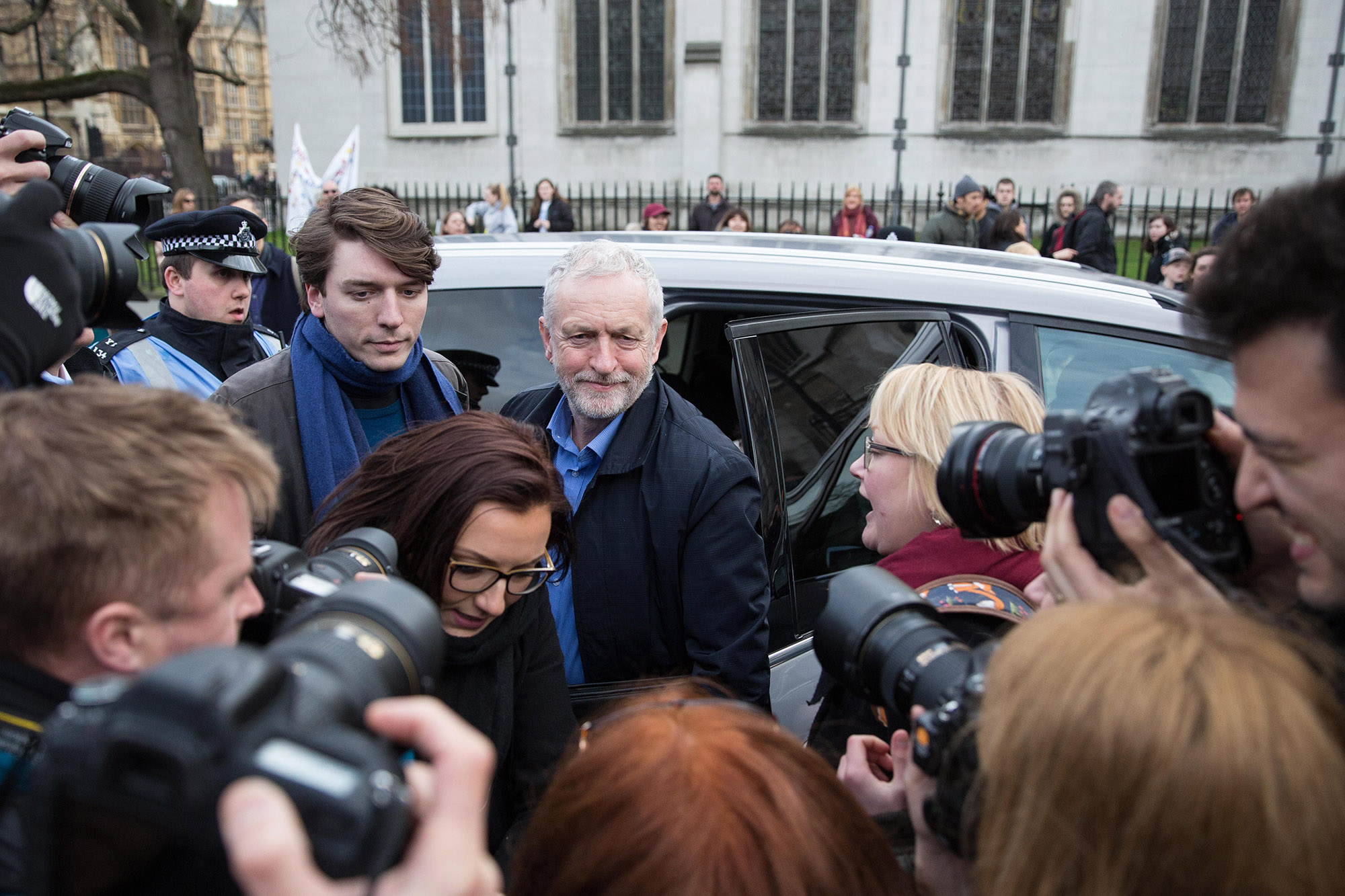Former Corbyn Strategist Says It's "Magical Thinking" To Expect Keir Starmer To Be Radical In No.10
Labour leader Keir Starmer (Alamy)
4 min read
Jeremy Corbyn's former chief strategist James Schneider has said he believes it is “the most silly type of magical thinking” to expect Labour leader Keir Starmer to become more radical if he enters Downing Street, as some have suggested he could.
Schneider told PoliticsHome podcast The Rundown that he believed there were "no examples of governments that radicalised in office”, and insisted that the reverse was more likely because the pressures of office could curtail expansive policy.
“The idea that suddenly, in two years time, they're going to turn around and say, ‘sorry, chaps, we're actually here to bring forward socialism’. It's just the most silly type of magical thing,” he explained.
Labour has consistently held a poll lead against the Conservatives since late last year, and is widely expected to be elected into government in 2024. In what appears to be an electoral strategy to project fiscal prudence and defuse attacks from the right, the party has already rowed back on a number of flagship Labour policies including promising to reverse the much-criticised two-child benefit cap and cancel university tuition fees. A number of figures who are supportive of Starmer, however, have suggested that if he were elected as Prime Minister, he would have more freedom to push more boundaries on policy.
But Schneider who co-founded the left-wing campaign group Momentum before becoming director of strategic communications for Starmer's predecessor Corbyn, felt this was unlikely to happen.
He did not believe Starmer could replicate the strategy of Tony Blair's government after they succeeded the Tories in 1997 because the economy was in a significantly worse place now. He noted that Blair's Chancellor Gordon Brown could commit to Tory taxation plans for two years after taking office but still have more money to spend because at the time the economy was growing, pay was increasing and tax receipts were increasing without Treasury intervention.
“That's not the condition we're in now,” Schneider continued. He felt that Labour’s reliance on growth to be able to increase spending and fund government projects without raising taxes in power was unlikely to happen in 2024.
“This is what in the global north social democratic parties that don't want to challenge where real power is, that's what they always rely on," he added.
“Because you say well, let's change that equation, rather than having to take from the rich to give to everybody else, things are just going to get better.
“Then we don't really need to take from the rich, they can just get richer."
Schneider argued this made sense when the economy was growing quickly and wages were keeping up with it, but “we've had two decades of lost pay”.
 James Schneider was director of strategic communications for Jeremy Corbyn (Alamy)
James Schneider was director of strategic communications for Jeremy Corbyn (Alamy)
Starmer's supporters say the party’s strong and enduring polling lead has been achieved by dragging Labour from where it was under Corbyn to the political centre, re-forging links with big business and winning trust from voters.
But Schneider claimed the so-called ‘centre’ of British politics “basically doesn't really exist”.
“What is presented as the ‘centre’ by SW1, politics and media all part of that big block, is consensus elite opinion, it is not the consensus of public opinion,” he said.
He cited polling showing large public support for policies like taxing wealth and income at the same rate, public ownership of industries like energy and water, but lamented that these areas “are excluded from political debate”.
"The idea that elections are won from the so-called centre, and the so-called centre is where people are just isn't true," Schneider continued.
“The party that has won elections has not been the one that's closer to meet the median voter, which is the kind of nonsense social science theory.”
But he nonetheless agreed that Starmer is pursuing a strategy which will be effective in winning the next election, but worried his government may not be a big enough shift from the status quo.
"Is that a strategy for any progressive social change for anything getting better?," Schneider asked.
“Is it a strategy for anything other than making [Starmer] the most hated man in Britain in five years? That is what happens if you become Prime Minister when the macro is really bad, and the macro is really, really bad, and you have no policies to do anything about it.
“So yes, Labour can win, and would I rather Labour win than the Tories? Yes, every day of the week, but I'm not going to suggest that that is a strategy for social change.
“It's certainly not a strategy for a second term.”
